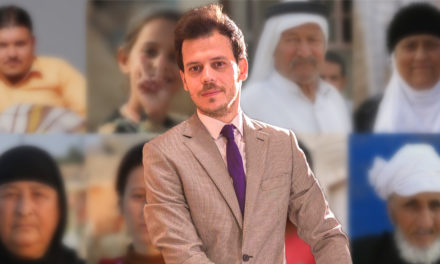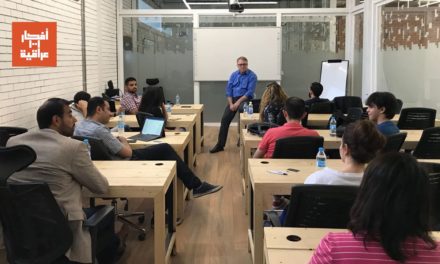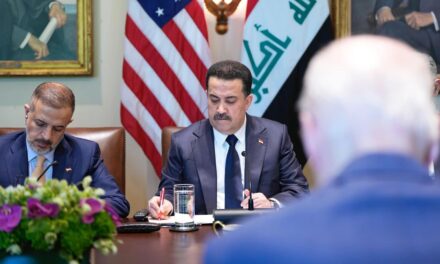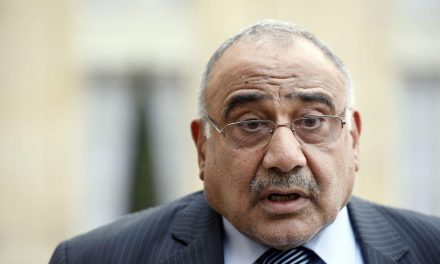In Ankara’s pursuit of greater influence in Kirkuk and Mosul, Turkish support has inflated a paramilitary force that, if collapsed, could generate diminishing returns for security in Nineveh. Turkey has created a security liability in northern Iraq.
When Daesh terrorists overran Mosul in 2014, the then governor of Nineveh- Athil al-Nujaifi- fled the city for Erbil. Parliament removed Nujaifi of his gubernatorial duties the following year, and an Iraqi court issued a warrant for his arrest that October. Nujaifi was suspected of securing the invitation of Turkish troops to a base in Bashiqa- 20 km northeast of Mosul- the warrant never coming to fruition.
Nujaifi’s relationship with Ankara, Erbil, and Baghdad is a complicated one. After his removal from office, Nujaifi reclassified local volunteer forces in Nineveh as Hash’d al-Watani (National Mobilization Forces). Ankara welcomed the predominantly Sunni formation sprouting outside Hash’d al Shaabi (Popular Mobilization Units) and offered 20 military advisers to train Nujaifi’s project.
Many were silent as Turkish troops, arms, armored vehicles, and tanks slowly built up in Bashiqa. What began with 20 advisers metastasized to a few hundred-man force north of Mosul. A narrow project of local men playing Operator on the weekend with faulty equipment got a serious facelift from Ankara.
In February of 2015, the Iraqi Cabinet- after months of heated disagreement- drafted a bill to create a National Guard for the country. Early drafts followed from the proposals of Prime Minister Haider al-Abadi to raise local forces, blind of religion or ethnicity, in each province under the control of respective governors. This bill would integrate local volunteers into local military units. It would also increase the number of police and security forces in stabilizing efforts, and, most importantly, it would place militias inside the jurisdiction of the state.
However, the concerns of several Shiite, Kurdish, and Sunni parties could not be assuaged in Parliament. The swift development of paramilitary forces outside the halls of government quickly outpaced any hope of reviving the legislation, and the failure of a National Guard Act (Qanoon al-Haras al-Watani) was cemented.
Now 3,000 men with Turkish support, the National Mobilization Forces operate outside of the official Baghdad-PMU structure. Prior to engagement in Mosul by the ISF (Iraqi Security Forces) in October of 2016, Hash’d al-Watani conveniently rebranded itself as Haras al-Nineveh (Nineveh Guards).
Irrespective of claims of his necessity to the Mosul operation, Nujaifi was barred from participating in clearing the city. Yet, the presence of the group has exacerbated tensions and revealed political marriages.
The U.S. has anchored its military influence in the Prime Minister’s control of the PMUs and ISF, while Turkey has anchored its influence in the very factions seeking to disable the PMUs and dilute the immediacy of the relationship between the Prime Minister and internal security forces. Including more actors in the national security decision-making apparatus certainly, does not align with Prime Minister’s Abadi’s envisioned reforms to the central government.
Meanwhile, Turkey nurses a unique power balance in the province. Ankara covets its relationships with the Iraqi Islamic Party, Muttahidoon, and the KDP (Kurdistan Democratic Party). Yet, Turkish influence is rejected in Ninevah among the PUK (Patriotic Union of Kurdistan), Gorran, ethnic minorities, anyone sympathetic to the PKK (Kurdistan Workers’ Party), and much of the central government. This, of course, does not account for the large share of Iraqi civilians who see Bashiqa as a gross violation of national sovereignty. Resolving political tension between Kurdish groups is more difficult with Turkey acting as an ancillary for the Barzanis.
However, even such a weathered alliance as the KDP and Ankara is now fraught. Turkey’s genuine priorities were revealed in areas like Sinjar where it sees increased PKK presence. Developing politicians like Nujaifi and Barzani as buffers to the Sinjar Resistance Units (YBS) reminds observers Ankara sees the PKK as its only existential threat.
Nuijafi enjoys support of the KDP and Ankara, but he habitually relies on the support of Muttahidoon- the Sunni coalition established by his brother Osama al-Nujaifi, former Speaker and Vice President. To the contrary, Athil al-Nujaifi remains at odds with several Sunni politicians- notably Salim al-Jabouri, who replaced Osama al-Nujaifi as Speaker in Parliament.
Earlier this year, Jawad al-Tleibawi, a senior leader of al-Hashd al-Shaabi said in press statements in January the PMU are “capable of forcing out the Turkish occupiers if diplomacy and political negotiations fail to” and called Bashiqa “a flagrant intervention in Iraq’s domestic affairs.” That fire was intensified in April when Turkish President Recep Tayyip Erdogan referred to government-sanctioned PMUs as a terrorist organization.
What is more disconcerting, as tensions rise, a political judgement could foolishly give the role of post-Mosul security to Haras al-Nineveh. On April 12, Osama al-Nujaifi claimed the Nineveh Guards will fill the role of providing the province’s security after the clearing of Mosul.
Athil al-Nuijafi has stated his preference for a more confederated Iraq on several different occasions. He has argued for a provincial constitution, and he likely sees a role for Haras al-Nineveh.
Recently, the creation of a Sunni region in the Nineveh Plains became the established goal of the newly formed United Iraqi Party (Lil-Iraq Muttehidun). Osama al-Nujaifi, its organizer, held the first meeting in Erbil two short weeks ago. He already has the backing of the KRG and Ankara. Erdogan is likely pleased with his call for the PKK’s expulsion from Iraq, and Barzani is likely pleased to have an ally in any future autonomy negotiations.
Those troubled by a poorly trained volunteer force with military-grade equipment should rightfully be nervous. The security of Nineveh in the post-Mosul era will call for greater assurance to the local population. Last week’s Daesh propaganda video suggests a sustained, committed threat to the province. As civility is restored to Nineveh, Baghdad cannot afford to leave Ankara asleep at the wheel.

Brandon Wallace
Brandon Wallace is an independent Middle East researcher and a graduate of Duquesne University.










